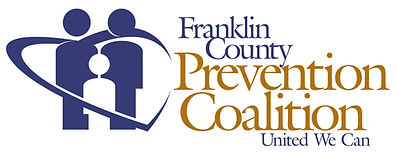
Marijuana/Cannabis
The Dangers of Marijuana/Cannabis
Cannabis Misuse Can Have Serious Side Effects
Cannabis remains the most commonly used federally illegal drug in the United States. In 2021 alone, nearly 20% of Americans reported using it at least once, highlighting its widespread presence across the country. While some argue that cannabis is legal in certain states and relatively harmless, the data tells a more concerning story. Approximately 3 in 10 individuals who use cannabis develop a cannabis use disorder. The drug can significantly affect key areas of the brain, including those responsible for memory, learning, attention, decision-making, coordination, emotion regulation, and reaction time. Additionally, long-term or frequent cannabis use has been associated with a higher risk of developing serious mental health conditions such as psychosis and schizophrenia in certain individuals. As cannabis use continues to grow, it's important to stay informed about the potential risks especially for young people and those with a personal or family history of mental health issues.
What You Need to Know About Cannabis Use and Teens
In 2022, 30.7% of 12th graders reported using cannabis in the past year, with 6.3% using it daily within the past 30 days. These numbers are not only illegal but deeply concerning.
Regular cannabis use during adolescence poses serious risks. The human brain continues developing until around age 25, and introducing substances like cannabis during this critical period can cause lasting changes. Cannabis can interfere with brain functions related to memory, decision-making, and emotional regulation—skills essential for academic and personal success.
Research shows that teens who use cannabis are more likely to struggle academically, with a higher likelihood of dropping out of high school and a decreased chance of earning a college degree. Not only can it cause problems with school, but it can also alter the teens social life. Cannabis has been linked to an increased state of depression and social anxiety. This doesn't just open the door to addiction but also to isolation, depression, and a sense of hopelessness.
Early use doesn’t just risk addiction—it can shape a young person’s future. Staying informed and educating youth about these risks is key to prevention and long-term well-being.
What Parents Can Do
-
Start the Conversation: Talk openly with your children about the risks of cannabis use—especially during adolescence, when their brains are still developing. Create a safe space for honest dialogue and ask thoughtful questions about their views or experiences with cannabis.
-
Stay Informed: Educate yourself about the facts. Research shows that teens who use cannabis are at greater risk for long-term brain development issues and are more likely to develop cannabis use disorder.
-
Be Proactive: Set clear expectations, stay engaged, and be a trusted source of support. Your involvement plays a crucial role in your child’s decision-making.
Learn More
Use the resources below to deepen your understanding and find tools to support meaningful conversations with your child.
*All resources for these facts are from the CDC.*
.jpg)